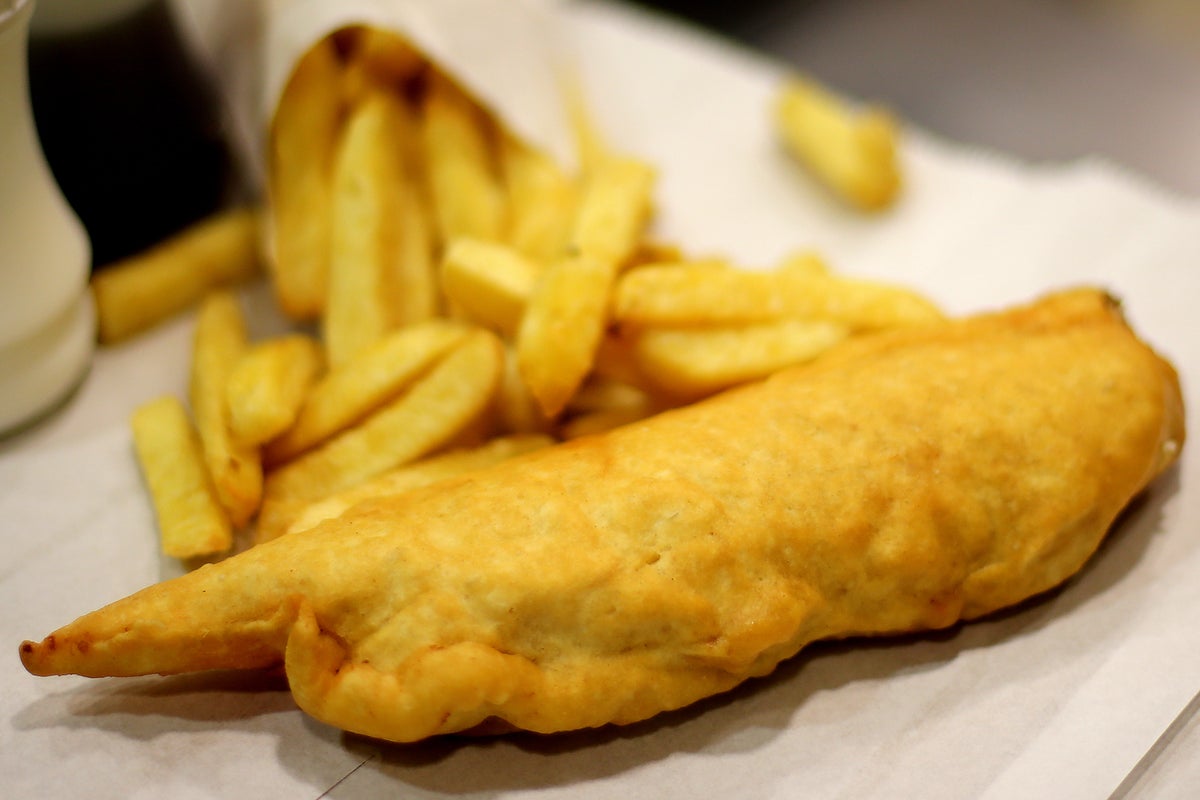The nation’s favourite choice for fish and chips could be under threat as scientists have warned fishermen they’ll need to catch far less cod in British waters in order to protect the species.
The International Council for the Exploration of the Sea (ICES), a Denmark-based independent body which advises the government on managing fish stocks, has judged that the cod population in almost all of Britain’s waters are so depleted that none should be caught next year for the species to recover.
The organisation advised that fishermen should avoid fishing for cod in the “Northern shelf”, referring to the English channel, the North Sea up to Norway and the west of Scotland, having previously warned against cod fishing in the Irish and Celtic seas.
While last year it was suggested fishermen should be allowed to catch 15,000 tonnes from these areas, the only area where ICES has suggested cod should be caught is in the waters around the island of Rockall in the north Atlantic. Even there, the independent body warned that only 11 tonnes could be caught sustainably – enough for approximately 55,000 fish suppers, or one meal for every 1,200 people in Britain, according to The Times.
“Northern shelf cod consists of three substocks (Northwestern, Southern, and Viking) which mix and are caught together”, the organisation wrote in its advisory. “ICES advises that when the maximum sustainable yield (MSY) approach and precautionary considerations are applied, there should be zero catch in 2026 for all substocks.”
ICES advises on maximum catches to allow fish stocks to be fished sustainably, but fishing quotas are often set by the government above the levels scientists have established.
Hugo Tagholm, executive director of Oceana UK, said the science confirmed that North Sea cod was in “grave danger of collapse”, which he said the charity had warned about in a 2023 health-check of fish stocks.
He said: “Our warnings about multiple populations at risk were ignored, and since then we have had to watch helplessly as the UK Government sold out our seas and communities, allowing fishing pressure to build relentlessly as the largest industrial vessels squeezed out the small local boats.
“Coastal livelihoods are dependent on making the right choices now, and supporting fishers through that process.
“No-one wins if we continue to empty our seas, stock after stock will follow cod, and once collapsed these populations could take decades to recover.”
Jonny Hughes, conservation charity Blue Marine’s senior UK marine policy manager, said the scientific assessment from Ices showed that cod in the North Sea and the west of Scotland had joined populations in the Irish Sea and Celtic Sea as having collapsed.
He added: “The scientific assessments published today show that cod in the North Sea and to the west of Scotland join the populations in the Irish Sea and the Celtic Sea as having collapsed.”
He said that to receive zero catch advice a fish stock had to be in an “abysmal” state, but it was the second stock after haddock in the Celtic Sea “joining the ranks of collapsed stocks” this year.
“This is a direct result of decisions in previous years to prioritise short-term economic profit for a handful of largely wealthy fishing companies, at the expense of the environment and the long-term future of fishing communities.
“This collapse was not unforeseen – in fact, it was predictable and inevitable.
“It’s what happens when fisheries managers and politicians play Russian roulette with a fully loaded gun,” he warned.
Conservationists are also raising concerns about mackerel, advice on which is due at the end of the month, and calling for countries to follow scientific advice in this year’s negotiations to protect these stocks.
A Defra spokesperson said: “It is important the UK, EU and Norway come together to deal with the challenges of managing this international stock.
“We are committed to rebuilding it to sustainable levels and ensuring we maintain the long-term viability of the UK fleet.”

